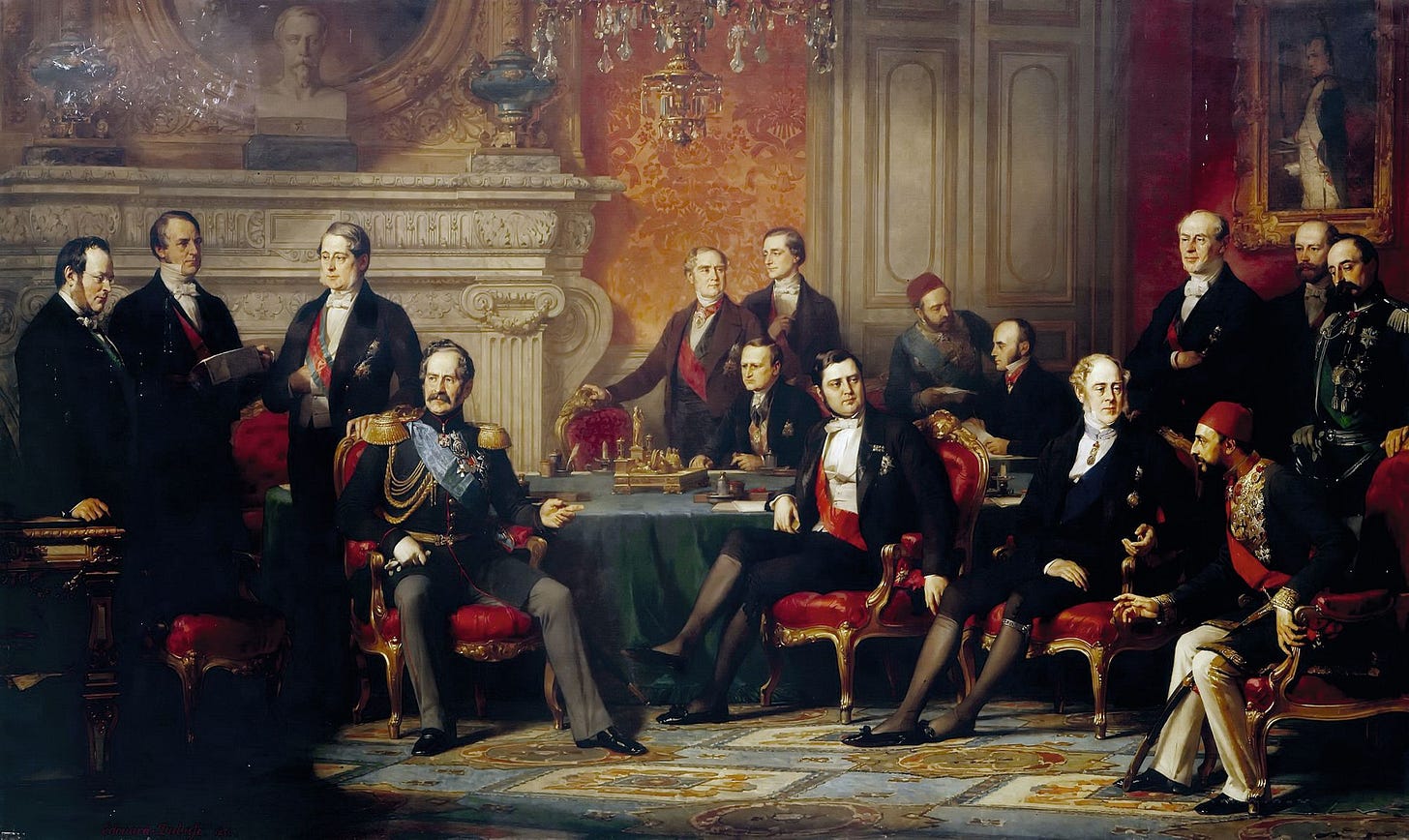The Week in Multilateralism
Friday, March 26, 2021
Russian foreign minister Sergei Lavrov has called for a summit of the UN Security Council’s permanent members. Reuters reported:
Russian Foreign Minister Sergei Lavrov told a news conference after talks with his Chinese counterpart Wang Yi that Moscow and Beijing were both unhappy with U.S. behaviour.
"We noted the destructive nature of U.S. intentions, relying on the military-political alliances of the Cold War era and creating new closed alliances in the same spirit, to undermine the U.N.-centered international legal architecture," said Lavrov.
"We emphasised that against the background of active attempts by the West to promote its concept of a 'rules-based world order', the joint efforts of Russia and China...to preserve the modern system of international law are becoming more and more relevant."
Lavrov is himself a former UN ambassador with long experience on the Council. As Richard Gowan pointed out, Russia has often supported the idea of a P5 summit. In the past, France has also been keen on the notion of big-power confabs, but this particular bid appears to have little Western support.
The idea of more regular major-power coordination got a boost this week from influential commentators. Writing in Foreign Affairs, Richard Haass and Charles Kupchan advanced the idea of a newly institutionalized “concert”:
The best vehicle for promoting stability in the twenty-first century is a global concert of major powers. As the history of the nineteenth-century Concert of Europe demonstrated—its members were the United Kingdom, France, Russia, Prussia, and Austria—a steering group of leading countries can curb the geopolitical and ideological competition that usually accompanies multipolarity.
Haass and Kupchan believe the Security Council itself is not the right vehicle for this new concert diplomacy and instead propose a new grouping:
A global concert would have six members: China, the European Union, India, Japan, Russia, and the United States. Democracies and nondemocracies would have equal standing, and inclusion would be a function of power and influence, not values or regime type. The concert’s members would collectively represent roughly 70 percent of both global GDP and global military spending. Including these six heavyweights in the concert’s ranks would give it geopolitical clout while preventing it from becoming an unwieldy talk shop.
The Israeli government has launched a website to challenge the International Criminal Court’s jurisdiction over Israeli citizens. The site describes the ICC’s involvement in Palestine as a “story of politicization and bias.” The website is one part of a broader Israeli diplomatic push to counter the court investigation into alleged Israeli crimes in the Gaza Strip and West Bank (the investigation includes alleged crimes by Palestinians as well). Other measures include Israeli diplomatic overtures to key European ICC members and the revocation of the Palestinian foreign minister’s travel permit. Steering the court’s Palestine investigation will be one of the many challenges facing newly elected ICC prosecutor Karim Khan.
Two prominent regional organizations faced questions this week of how deeply to delve into the internal affairs of their member states. Singapore added its voice to calls for an emergency meeting of ASEAN members to consider the bloc’s response to the coup in Myanmar. Via The Diplomat:
Singapore’s call comes after Indonesian President Joko “Jokowi” Widodo and Malaysian Prime Minister Muhyiddin Yassin issued a similar call for ASEAN to convene a special summit in order to address the turmoil in Myanmar. Jokowi urged “that the use of violence in Myanmar be stopped immediately so that there are no more victims.”
In Latin America, meanwhile, controversy continued to simmer about the role of the Organization of American States (OAS) in Bolivian politics. The organization and its leadership have been highly critical of developments in that country. During a bilateral meeting this week, the leaders of Mexico and Bolivia warned the OAS chief, Luis Almagro, to stay out of their internal affairs:
[Mexican president Manuel] López Obrador and [Bolivian president Luis] Arce have concurring views on Almagro’s role and that of the OAS in the political and social crisis between October and November 2019 which led to the toppling of then Bolivian President Evo Morales.
Both leaders urged the OAS to respect democracy and “to act within its own institutional framework and to refrain from intervening in the internal affairs of the member states.”
The Organization for Economic Cooperation and Development (OECD) has a new leader, former Australian minister Mathias Cormann. He got the nod despite criticism of his record on climate change. In an editorial, the Financial Times described the organization as “underrated” and urged its new leader to protect its legacy:
The OECD, based on the site of a former royal hunting lodge in Paris, is one of the few venues where the domestic bureaucracies of its different members confront each other and can learn from their experience. As the “rich country think-tank” it provides a rare forum for international discussions of education, health and pensions, areas where it is all too easy to become insular and believe that challenges are unique to one country.
Briefly noted:
New World Trade Organization director general Ngozi Okonjo-Iweala expressed disappointment at new European Union restrictions on vaccine exports.
Pakistan is getting the next tranche of a six billion dollar loan package from the International Monetary Fund.
Frustrated about the process of selecting the organization’s next secretary general, Palau is pulling out of the Pacific Islands Forum.
The UN Human Rights Council passed resolutions condemning abuses in Myanmar and Belarus.
African Union observers praised recent elections in the Republic of Congo.
The Asian Infrastructure Investment Bank will help the Philippines purchase covid-19 vaccines.
A Libyan commander indicted by the International Criminal Court has reportedly been killed in Benghazi.
Who will be invited to this fall’s planned Shanghai Cooperation Organization military exercise?


